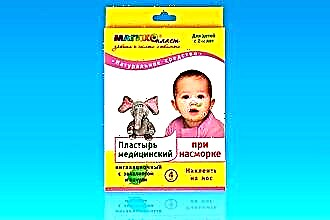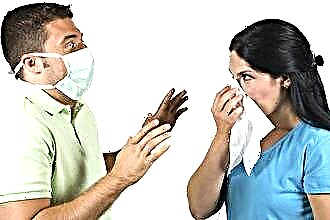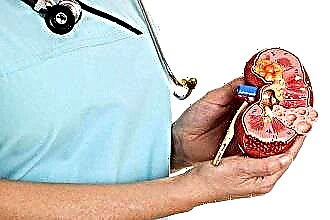The symptoms and treatment of any infectious disease depend on the causative agent that caused it. The cause of the development of herpangina is enterovirus. Therefore, the most effective treatment for this disease is activities directed against this viral pathogen. However, the lack of effective antiviral agents complicates the implementation of therapeutic measures.
At the same time, the nature of the necessary therapeutic actions depends not only on the specific pathogenic microorganism. Symptoms of the disease, the age of the patient, and comorbidities also play an important role in prescribing treatment.
Treatment principles
The main symptom of herpangina is a characteristic rash on the tonsils, the back of the pharynx, the arches, and the hard and soft palate.
 Appearing as reddish punctate nodules, they transform within 1-2 days into pathological foci resembling herpetic eruptions, which is reflected in the name of the disease. However, since the pathological process is not caused by the herpes virus, but by another pathogen, the treatment of herpes sore throat in children is different. In this case, drugs prescribed for the treatment of herpetic lesions, such as Acyclovir, Zavirax, Gerpevir, cannot be used.
Appearing as reddish punctate nodules, they transform within 1-2 days into pathological foci resembling herpetic eruptions, which is reflected in the name of the disease. However, since the pathological process is not caused by the herpes virus, but by another pathogen, the treatment of herpes sore throat in children is different. In this case, drugs prescribed for the treatment of herpetic lesions, such as Acyclovir, Zavirax, Gerpevir, cannot be used.
Acute tonsillitis is characterized by the development of pathological foci exclusively within the tonsils.
In the case of herpes sore throat, the lesions spread to a greater extent to the posterior pharyngeal wall, palate, arches, and to a lesser extent the tonsils are affected. Therefore, the use of antibiotics necessary in the case of follicular sore throat or other acute tonsillitis caused by a bacterial pathogen is incorrect.
Given that there are no effective antiviral drugs, the treatment of herpetic sore throat in children is aimed at increasing immunity. Activities should
- help reduce the level of viruses in the body;
- improve the general condition;
- prevent the development of complications.
When deciding how to treat herpes sore throat, it must be borne in mind that in addition to the presence of lesions in the throat, children have the following symptoms:
- acute onset;
- development of weakness, malaise;
- lack of appetite;
- pain syndrome localized in the throat;
- dry cough;
- runny nose;
- an increase in body temperature up to 40 degrees;
- enlargement and soreness of regional lymph nodes.
In rare cases, there may be single rashes on the lower and upper extremities. In severe cases, symptoms develop that are characteristic of involvement in  gastrointestinal tract process:
gastrointestinal tract process:
- nausea;
- vomit;
- abdominal pain;
- diarrhea.
In weakened children or newborns, the disease is characterized by a more severe course. In this case, there may be symptoms indicating the development of meningitis, encephalitis, pyelonephritis, heart damage.
Antipyretic activities
A very important factor in determining how to treat herpes sore throat is the temperature response indicators. It is reliably known that an increase in temperature in a child is a protective mechanism that provides an increase in immunity. The development of hyperthermia indicates the body's fight against a pathogenic virus. In this regard, it is justified to carry out measures aimed at reducing the temperature indicators only if it rises above 38 degrees, the child's condition worsens, as well as with the development of white hyperthermia, when the patient's condition deteriorates sharply, the skin becomes sharply pale.
As antipyretic measures, the treatment of herpetic sore throat in children includes both drug and non-drug actions. Using an adequate temperature regime, humidification of the air, appropriate clothing, it is possible to reduce the temperature by 0.5-1 degrees, which will significantly improve the patient's condition. Correct therapeutic actions imply the use of antipyretic drugs only when the measures that promote the easiest possible release of heat by the body have been ineffective.
However, when using non-steroidal anti-inflammatory drugs that have antipyretic effects, especially paracetamol and ibuprofen, their analgesic properties must also be taken into account. These remedies may reduce some of the sore throat.
Drinking plenty of fluids
The most important role in the treatment of herpes sore throat in children is played by drinking plenty of fluids.
Hydration of the body helps to reduce body temperature and is a powerful detoxification mechanism aimed at removing the virus from the body.
Due to the fact that not only rough food, but also any liquid when swallowing increases pain, it is important to drink a drink that does not irritate the mucous membrane.
These can be any drinks at room temperature or even cool ones. It is at this temperature that they will most effectively help to reduce the temperature without irritating the throat mucosa. When offering a drink to a child, it must be borne in mind that sour or salty drinks can increase the irritating effect on the throat mucosa.
Local treatment
Patients describe sore throat as a constant burning or scratching in the throat. However, topical preparations with antiseptic, bactericidal, anti-inflammatory effects do not have a noticeable effect on the rate of recovery. As for the analgesic effect of aerosols or lozenges, patients assess their effectiveness in different ways. At the same time, when using aerosols in a child, it is necessary to take into account the possible irritating effect of these funds and the patient's categorical refusal to take them.
It is possible to treat herpes sore throat in children without resorting to the use of coercive measures. In older children, it is quite enough to limit yourself to gargling with soda or saline solution, which the child  will conduct it yourself. If the use of aerosols does not cause discomfort, then it is possible to use drugs such as Givalex, Tantum Verde, Ingalipt. Among the pills, in this case, the analgesic effect can be achieved with the use of Strepsils, Lisobact, Faringosept.
will conduct it yourself. If the use of aerosols does not cause discomfort, then it is possible to use drugs such as Givalex, Tantum Verde, Ingalipt. Among the pills, in this case, the analgesic effect can be achieved with the use of Strepsils, Lisobact, Faringosept.
There are different opinions among practicing doctors regarding the use of the immunostimulating drug Imudon. Some experts consider his appointment to be justified, contributing to a speedy recovery. Other doctors are of the opinion that the drug has too many side effects for safe use in children.
Contraindicated procedures
There are also activities, the implementation of which in this pathological condition is dangerous and can lead to the spread of the process. These actions are
- warming procedures for the neck area (compresses, rubbing);
- inhalation;
- the use of electrical procedures.
The danger when using these procedures is due to the fact that their use is associated with a local increase in temperature and an improvement in blood supply in the throat. This contributes to the development of conditions for the spread of the viral pathogen.
Recommended activities
Diagnosis of herpes sore throat can be difficult, due to the nature of the development of pathological foci and their similarity with follicular angina. In this regard, what and how to treat herpes (herpetic) sore throat in children should be determined by the ENT doctor.In this case, the parents of the child must be patient, since the duration of the disease reaches 8-10 days.
The main therapeutic measures required for herpes sore throat in a child are as follows:
- ensuring bed rest;

- creating a comfortable temperature regime in the room at the level of 18-20 degrees;
- ensuring sufficient air humidity;
- drinking plenty of fluids;
- the child's nutrition should be carried out only if there is an appetite;
- the food ration should consist of dishes at room temperature, served mashed;
- it is possible to use antipyretic drugs;
- depending on the age of the child, the use of topical preparations is shown, as well as rinsing the throat;
- in a severe course of the process, the use of immunostimulating agents is possible.




